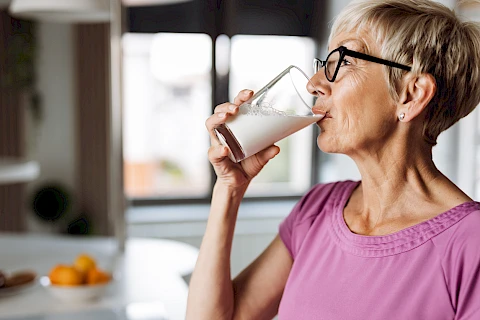
Our bones are the supporting structure of our bodies, and for seniors, keeping them healthy becomes crucial. Maintaining strong bones can help prevent falls, fractures, and a condition called osteoporosis. Good bone health for seniors is essential for leading vibrant, active lives. One of the most powerful ways to support bone health is through a proper diet.
Emphasizing Bone Health in Seniors
As seniors, our bone density naturally decreases. This means bones become thinner and weaker over time, making them more susceptible to breaks. Osteoporosis, which affects millions of seniors, is a condition characterized by porous and brittle bones. The condition often goes unnoticed until a fracture occurs, making prevention all the more crucial. Diet is a major component in this preventive strategy, as it provides the nutrients to maintain bone density and strength.
Nutrients Needed for Strong Bones
Several nutrients contribute to bone health:
- Calcium is the building block of bones, and seniors must ensure they get the recommended daily intake, generally around 1,200 mg per day. Good sources of calcium include dairy products like milk, cheese, and yogurt, as well as leafy green vegetables, nuts, and seeds.
- Vitamin D helps facilitate the absorption of calcium. Without it, even calcium-rich diets may fall short. Sun exposure is a natural way to get vitamin D, but it can also be found in fortified foods such as fish, eggs, and certain dairy products.
- Other essential nutrients include magnesium, vitamin K, and protein. Magnesium helps with calcium absorption and is found in whole grains, nuts, and seeds. Vitamin K, found in leafy greens, works with calcium to build bones. Protein supports bone structure and is abundant in lean meats, beans, and legumes.
Dietary Recommendations for Bone Health
Seniors should aim for a balanced diet that includes a variety of foods to incorporate these nutrients into their diets. This helps guarantee that they're hitting all the essential nutrients. Include plenty of vegetables, fruits, proteins, and whole grains in meals.
For meal planning, consider having oatmeal with sliced almonds and milk for breakfast, a leafy green salad with grilled salmon for lunch, and a dinner of grilled chicken with broccoli and quinoa.
Snacks like yogurt with fruit or a handful of nuts can also provide a nutritious boost.
Sometimes, it might be difficult to get all the necessary nutrients from food, particularly vitamin D. In such cases, dietary supplements may help.
Always check with your doctor before adding a supplement to your diet. They will check for possible interactions with your medications and suggest an appropriate dose.
Lifestyle Factors and Bone Health
Besides diet, lifestyle choices greatly affect bone health. Engaging in regular physical activity, specifically weight-bearing exercises such as walking or lifting light weights, is crucial. These exercises stimulate bone growth and improve balance.
You should also limit substances that may be harmful to bones. Excessive caffeine and alcohol intake can interfere with calcium absorption and bone formation.
At Senior Helpers Yardley, We're Ready to Help
Diet is instrumental in maintaining bone health and preventing conditions such as osteoporosis, especially for seniors. You can help keep your bones strong and healthy by focusing on a diet rich in calcium, vitamin D, and other essential nutrients, combined with an active lifestyle. For personalized senior care and support in Southampton, Bensalem, Langhorne, Morrisville, Levittown, and other parts of Bucks County, don't hesitate to contact us at Senior Helpers Yardley today. We would love to discuss our services for seniors and their caregivers, such as Companion Care and Respite Care.